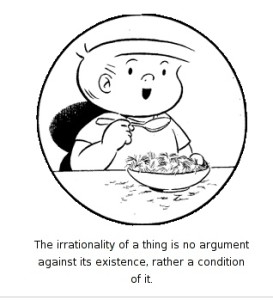The Tragedy of the American Military, James Fallows, The Atlantic, January/February 2015
This has become the way we assume the American military will be discussed by politicians and in the press: Overblown, limitless praise, absent the caveats or public skepticism we would apply to other American institutions, especially ones that run on taxpayer money. A somber moment to reflect on sacrifice. Then everyone except the few people in uniform getting on with their workaday concerns.
***
This reverent but disengaged attitude toward the military—we love the troops, but we’d rather not think about them—has become so familiar that we assume it is the American norm. But it is not. When Dwight D. Eisenhower, as a five-star general and the supreme commander, led what may have in fact been the finest fighting force in the history of the world, he did not describe it in that puffed-up way. On the eve of the D-Day invasion, he warned his troops, “Your task will not be an easy one,” because “your enemy is well-trained, well-equipped, and battle-hardened.” As president, Eisenhower’s most famous statement about the military was his warning in his farewell address of what could happen if its political influence grew unchecked.
At the end of World War II, nearly 10 percent of the entire U.S. population was on active military duty—which meant most able-bodied men of a certain age (plus the small number of women allowed to serve). Through the decade after World War II, when so many American families had at least one member in uniform, political and journalistic references were admiring but not awestruck. Most Americans were familiar enough with the military to respect it while being sharply aware of its shortcomings, as they were with the school system, their religion, and other important and fallible institutions.
Now the American military is exotic territory to most of the American public. As a comparison: A handful of Americans live on farms, but there are many more of them than serve in all branches of the military. (Well over 4 million people live on the country’s 2.1 million farms. The U.S. military has about 1.4 million people on active duty and another 850,000 in the reserves.) The other 310 million–plus Americans “honor” their stalwart farmers, but generally don’t know them. So too with the military. Many more young Americans will study abroad this year than will enlist in the military—nearly 300,000 students overseas, versus well under 200,000 new recruits. As a country, America has been at war nonstop for the past 13 years. As a public, it has not. A total of about 2.5 million Americans, roughly three-quarters of 1 percent, served in Iraq or Afghanistan at any point in the post-9/11 years, many of them more than once.
The Surprising Thing People Who Resist Authority Have in Common, Krystnell Storr, Science.Mic, January 14, 2015 Continue reading


![By TheDoctorMo (Own work) [CC BY-SA 3.0 (http://creativecommons.org/licenses/by-sa/3.0) or GFDL (http://www.gnu.org/copyleft/fdl.html)], via Wikimedia Commons By TheDoctorMo (Own work) [CC BY-SA 3.0 (http://creativecommons.org/licenses/by-sa/3.0) or GFDL (http://www.gnu.org/copyleft/fdl.html)], via Wikimedia Commons](http://crypticphilosopher.com/wp-content/uploads/2015/01/Hoard.jpg)

 This was an exercise from a session I went to at the
This was an exercise from a session I went to at the  My SXSWi experienced has left me feeling inspired, intrigued, excited, energized, and…..utterly, entirely unmotivated.
My SXSWi experienced has left me feeling inspired, intrigued, excited, energized, and…..utterly, entirely unmotivated.